How Long Does Grass Seed Last? (Find Out Now!)

It never hurts to invest in your lawn’s future when you consider the curb appeal that lush grass adds. Grass seeds goes a long way, so many homeowners hold onto grass seed for months or even years at a time. When the time comes to plant the old grass seeds, many homeowners wonder; how long does grass seed last?
You can hold onto grass seed for between 2 and 3 years before they won’t be useful anymore. However, grass seeds can expire much sooner if you don’t keep them in a dry, cool environment to protect them. It’s easy to find out if the grass seed is still good if you place it in a container of water for 15 minutes to see if it sinks or floats.
Your grass is the seed that is viable to plant if it floats, but it has gone bad if it floats. The best option is to keep grass seed in a plastic container in the dark until you need to use it within 2-3 years. Let’s take a deep dive into how long grass seed lasts, and what you can do to prolong its life.
Does Grass Seed Have A Shelf Life?
Yes, grass seed generally has a shelf life of between two and three years you store it properly. It is better to plant grass seeds within months of buying them, but you can hold onto grass seeds. Try to keep your grass seeds in a dry and relatively cold space or else they can go bad.
The seeds lose some of their potency the longer that you hold onto them, and it affects germination. You can stretch grass seeds much further with more successful results if you plant them soon after you buy them. The grass seeds won’t germinate well, and you’ll need to use more the longer that you hold onto them.
Holding onto grass seeds for two or three years doesn’t diminish the quality of grass, however. The seeds that stay healthy will still produce grass, but not all of them will be fertile. Hold onto your grass seeds for as long as you can but beware that you’ll need to use more seeds for fewer results.
How Do You Know If Grass Seed Is Still Good?
The best way to tell if grass seeds are still good is to try to germinate a few of them. Aged batches of grass seeds are still potent, but not all of the seeds will be fertile.
The best way to find out if any of them are still good is to take a small handful of them and attempt to germinate them. Luckily, there are two methods that you can use to tell if your grass seeds are still viable.
How To Do The Cup Test To See If Grass Seed Is Good
Step 1: Fill Cup With Water/Soil
Take a small disposable cup made of plastic or Styrofoam and place a paper towel at the bottom of it. Fill the cup it ¼ of the way with cool water so that it doesn’t exceed 1 ½ inch. Alternatively, you can fill a cup up ¾ of the with soil instead of water.
Step 2: Plant Grass Seeds
Place a small handful of grass seeds into the water in the cup. Or, dump one tablespoon of grass seed in the cup if you filled it with soil for the same effect. Take your cup of water or soil with grass seeds in it and place it on a windowsill.
Step 3: Wait For Germination
Now, all that you need to do is wait up to 10-12 days to see if the grass seeds will germinate. You may need to add water whether you filled a cup with water or with soil if you notice it dry out. Your grass seeds are expired if the grass does not sprout in the cup.
In that case, you will need to buy new grass seeds and plant them sooner this time. However, you can always try this process again with other seeds from the same batch to see if they will germinate.
How To Do The Water Test To See If Grass Seed Is Good
You can try the classic water test if you want to know if your grass seeds are viable right away. However, the water test is not always as accurate as germinating a few to see if they will grow. First, take a small plastic container, such as Tupperware, and fill it 1”-2” of cool water.
Set a timer for 15 minutes and casually observe the seeds as the timer counts own. Check your grass seeds are 15 minutes to see if they are still floating, or if they sank. Hopefully, your grass seeds sank because that means that you can successfully plant and germinate them.
However, you could toss the rest of your grass seeds out if they sank to the bottom of the container. That means that they will not be able to successfully germinate. This is a great way to find out if your grass seeds are still going to germinate, but it’s not as effective as the cup method.
How To Store Grass Seed
Storage is everything if you want to hold off and wait to plant your grass seed for several months, or even years. The best way to store unused grass seeds is to place them in a plastic container with a lid. Check your grass seeds for moisture, pat them dry, place them in the container, and secure the lid so that it’s airtight.
Now, place the container in an area of your house that is generally cool, dry, and ideally away from direct light. Closets and basements are the best places to store grass seed because they’re often colder, darker, and drier than the rest of the house. You can make it easier to tell if the seeds are viable if you label the container.
That can help you keep track of how old the grass seeds are so that you don’t have to wonder if they’ll germinate. Ideally, you try to plant the grass seeds before two or three years pass, but that may be necessary. Follow this method and at least some of the grass seeds will still be viable after a few years of storage.
Does Grass Seed Expire Or Go Bad?
Grass seed eventually goes bad with time if you don’t germinate them within three years. They can also go bad if you leave the grass seeds exposed to warm air for an extended period. Exposure to excess moisture can also prevent them from germinating if and when you plant them.
How Long Are Packaged Seeds Good For?
Related Questions
Will grass seed itself?
Most grass cannot seed itself because the majority of homeowners regularly mow their lawns. Grass seeds come from blades of grass that have grown long enough for seeds to appear. Seeds don’t appear if you mow your lawn often, and that won’t allow the grass to seed itself.
Can you just sprinkle grass on the lawn?
You technically can just sprinkle grass on the lawn but won’t be able to see much germination from it. Grass seeds require you to cover them with a thin layer of soil up to ¼ inch for it to grow. It’s hard to guarantee that your grass seeds will get soil cover if you simply sprinkle them on the lawn.
What is the best thing to put over grass seed?
Place either ¼” of fertilized soil or a thin layer of green mulch to help it germinate well. You can also put a thin layer of peat moss over the grass seed to prevent corrosion and maintain moisture.Green mulch and peat moss are the best options if you haven’t been able to keep the grass alive in a specific area.
Summing It Up
Grass seeds last for between two and three years if you store them carefully. The best method is to place them in an airtight plastic container and keep them in a closet or the basement. Seeds need a dark, cool, and dry environment to stay viable for an extended period.
It is possible to test the grass seeds to see if they’ll grow with a container of water. Place the seeds in a container of water for 15 minutes and keep the seeds that float. Floating indicates that the seeds are still viable and that you can plant them and sinking indicates that they are useless.
You can also put the seeds in a cup of water or soil for up to 12 days to see if they germinate. Try to use your grass seeds before the two-year mark because more of them will germinate.
Related Articles

Nick Durante is a professional writer with a primary focus on home improvement. When he is not writing about home improvement or taking on projects around the house, he likes to read and create art. He is always looking towards the newest trends in home improvement.
More by Nick Durante



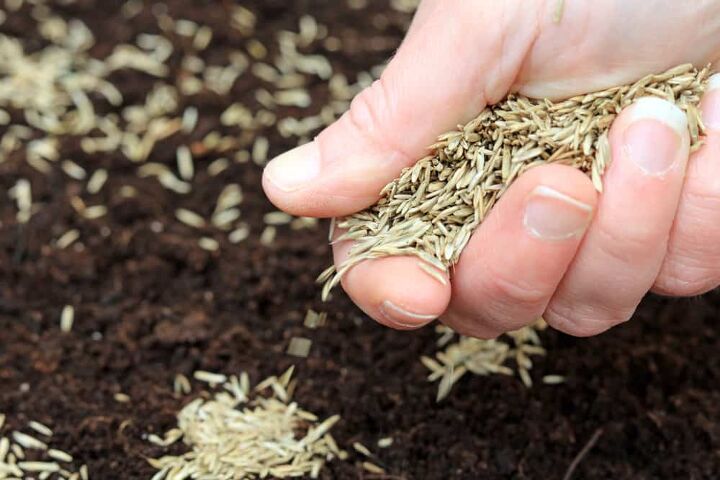


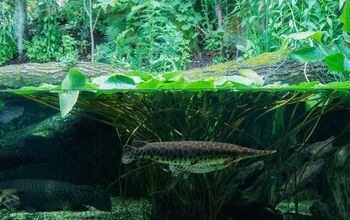





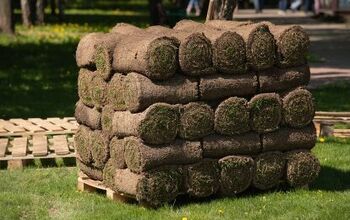
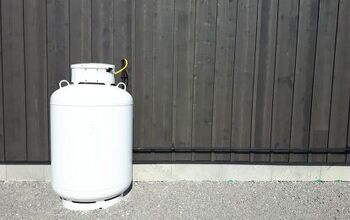

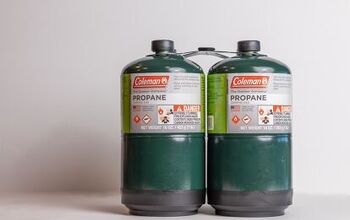
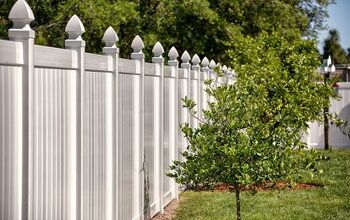


![10 Most Dangerous Neighborhoods in Baltimore [Updated]](https://cdn-fastly.upgradedhome.com/media/2023/07/31/9075655/10-most-dangerous-neighborhoods-in-baltimore-updated.jpg?size=350x220)




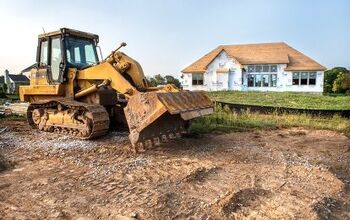
![Standard Dining Room Table Dimensions [for 4, 6, 8, 10 and 12 People]](https://cdn-fastly.upgradedhome.com/media/2023/07/31/9074335/standard-dining-room-table-dimensions-for-4-6-8-10-and-12-people.jpg?size=350x220)



